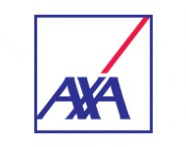Can commercial bonds help as the economy prepares to reopen?

Authored by Maria Duhart, Head of Commercial Bonds in AXA XL’s Political Risk, Credit & Bond division.
As national and local governments take steps to reopen the economy after the COVID-19 shutdown, businesses are exploring ways to navigate through uncertainty. The team at AXA XL remains closely connected to customers and brokers, providing insights on how commercial bonds can help return to productivity and advance toward objectives.
Based on conversations with our customers and brokers, we learned they are focusing on four main goals to recover from the coronavirus pandemic. Notably, each area presents an opportunity to use a commercial bond:
Protecting employees while achieving productivity. While millions of workers in administrative and other roles who can work remotely are doing so, many others who need to have boots on the ground must practice social distancing and take additional protective measures. Public health and workplace policies continue to evolve with guidance from the World Health Organization and Centers for Disease Control & Prevention.
Wherever and whenever employees are working, there are occupational risks. For that reason, workers compensation programs are critical every day. A common structure in workers comp programs is a large deductible or self-insured retention, but these generally require employers to post equivalent collateral. Often these take the form of a letter of credit (LOC). A workers comp deductible bond is a cost-effective option that frees up credit for other corporate purposes while helping employers guarantee the payments within the deductible and self insurance retention layers.
Stabilizing supply chains. Supply chain disruptions are forcing many businesses to evaluate alternative sourcing options and create contingency plans, such as inventory buffers of critical components. To ensure the flow of supplies, some organizations might consider short-term loans for key suppliers and expedite their qualification of new suppliers. Commercial bonds can guarantee completion of supply contracts as well as the payment of customs duties on imported materials.
Maintaining customer engagement and support. Businesses everywhere need to communicate with customers and manage their expectations. This is important all year long, and especially when operations are disrupted. While businesses should not overpromise in times of uncertainty, a good way to meet customers’ needs and provide assurance is with completion or performance bonds. These commercial bonds respond when a vendor is unable to fulfill its contractual obligations.
Increasing liquidity and financial resources. When normal operations are disrupted, maintaining liquidity is paramount. Some methods businesses use to increase cash on hand is to seek payment from customers sooner, extend accounts payable where possible, accelerating collections and even factoring receivables. An overlooked area is freeing up lines of credit when businesses must post LOCs. Commercial bonds can replace LOCs and enable businesses to use their credit facilities to enhance liquidity.
How commercial bonds work
All commercial bonds work on a simple principle: A bond from the bonding company, also called a surety, guarantees that compliance, financial or performance obligations are met. Commercial bonds are one of the most diverse forms of financial protection available, able to respond to a variety of different situations. For example, commercial bonds can guarantee
- Financial security required by courts for appeals and other judicial processes.
- Payment of customs duties, taxes and fees on imported goods.
- Compliance obligations such as license and permits.
- Financial obligations such as lease and utility payments.
- Decommissioning of assets after their useful life.
- Reclamation and restoration of land used for extracting natural resources.
- Performance and payment of service providers.
- Supply and installation of equipment.C
- Completion of development projects.
- Many other miscellaneous financial or performance obligations.
Commercial bonds are one of the most diverse forms of financial protection available, able to respond to a variety of different situations.
Here is a hypothetical example of how commercial bonds can keep businesses and economies growing:
Fair Winds Partners has a contract to manufacture and supply wind turbines for a 25-year renewable energy project in the midwestern United States. Fair Winds has agreed to manufacture and supply 100 turbines at sites on leased farmland as well as municipally owned property. The turbines, which are highly efficient in generating electricity, are imported from Europe. Multiple parties will benefit from this renewable energy project.
The turbines will offset regional power generation needs, reducing utility costs; landowners will receive income in exchange for leasing small parcels to accommodate the footprint of each turbine; the municipality gains additional power resources that can facilitate its sustainable development plans; and Fair Winds will receive revenue that supports jobs and tax receipts. Not insignificantly, the long-term impact on the environment is positive, as the renewable energy project reduces local dependence on fossil fuels.
Commercial bonds can support this energy development project in a few different ways:
- A supply bond can guarantee that Fair Winds will supply the wind turbines to the specifications of the contract.
- A customs bond can ensure that the imported turbines clear customs without delay.
- A decommissioning bond can provide certainty that once the project’s lifecycle ends, the land will be restored to its prior condition.
- Performance surety bonds can be used to ensure the successful installation of the turbines.
As COVID-19 impacts the global economy, credit markets are tightening. Companies may consider refinancing their debt maturities in a tighter credit environment. By utilizing commercial bonds, they can free up that capacity or reduce utilization of their credit lines. In the above example, commercial bonds allow Fair Winds to continue tapping its line of credit to invest in equipment and labor for new projects, rather than utilizing it to guarantee their supply contracts.
Our team can provide customers and brokers with a line of authority with an approved single limit and aggregate limit for routine bond needs, facilitating the issuance of bonds when needed.
When operations and projects move forward, businesses can survive a tighter liquidity environment. Every vendor and supplier faces some form of compliance, financial or contractual obligation. As businesses consider ways to keep moving forward and preserve economic opportunities by managing their risks, they should consider the many advantages of commercial bonds.
About AXA XL
AXA XL is the P&C and specialty risk division of AXA which provides property, casualty, professional and speciality products to industrial, commercial and professional firms, insurance companies and other enterprises, here in the UK and throughout the world. With underwriting teams based in the US, UK, EMEA and Asia Pacific regions, we can make decisions close to the markets you serve and work with you to tailor cover to your business needs.
We help businesses adapt and thrive amidst change. Rather than just paying covered claims when things go wrong, we go beyond protection into prevention so your business can go beyond the unexpected.

